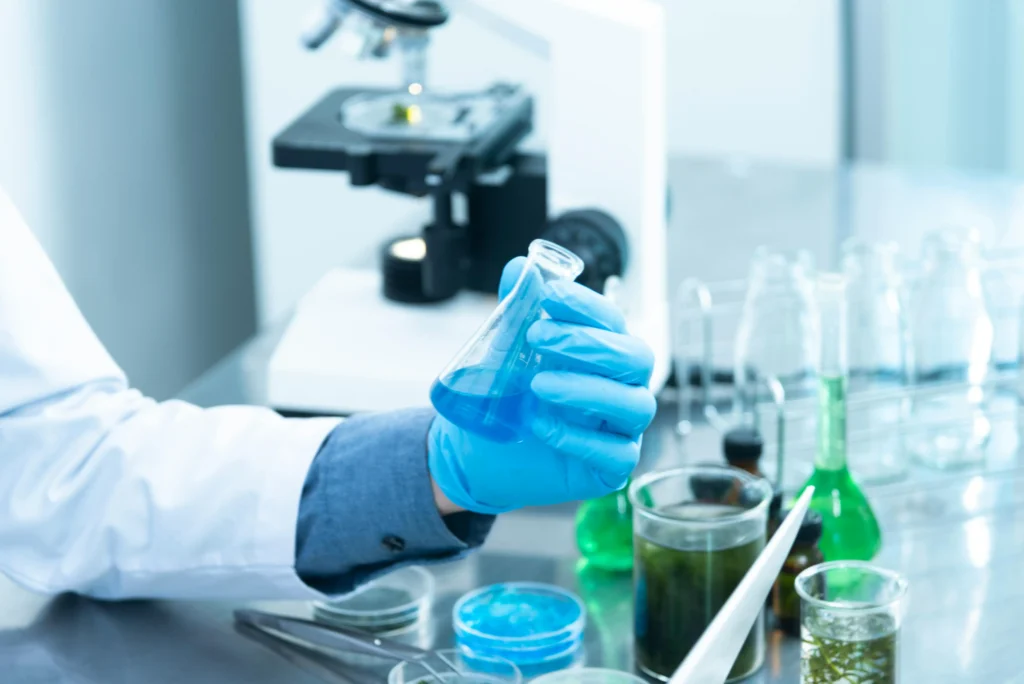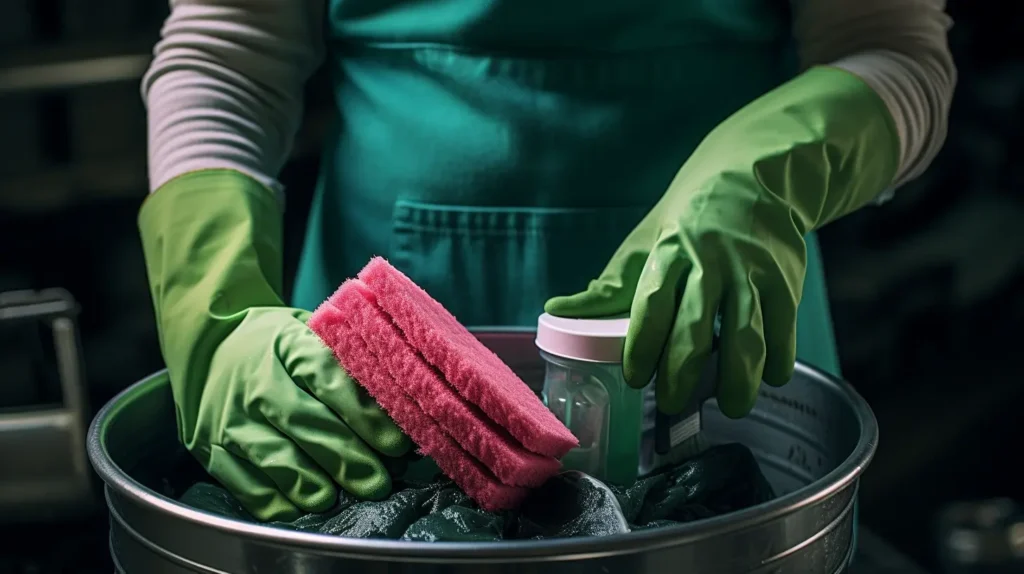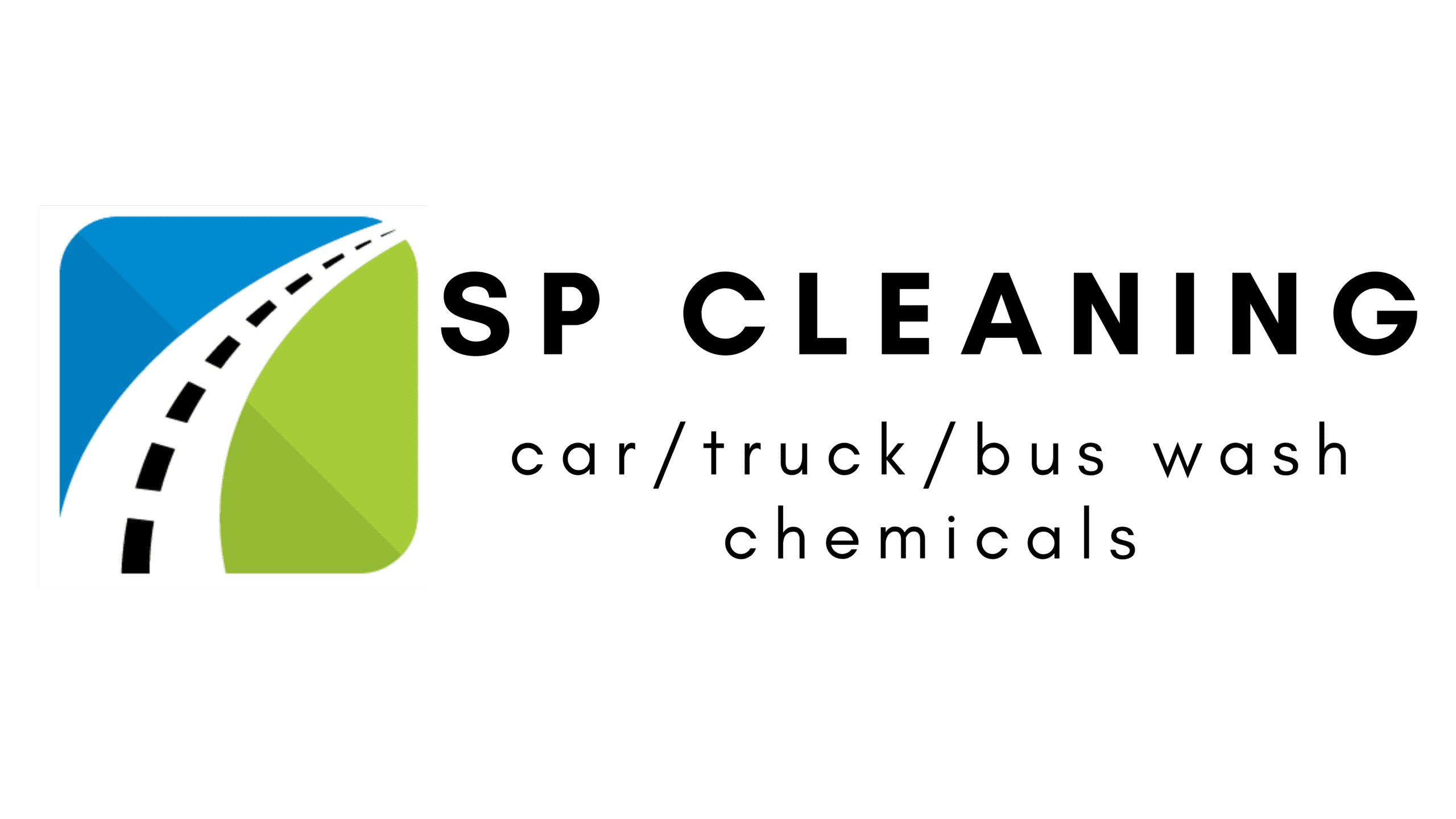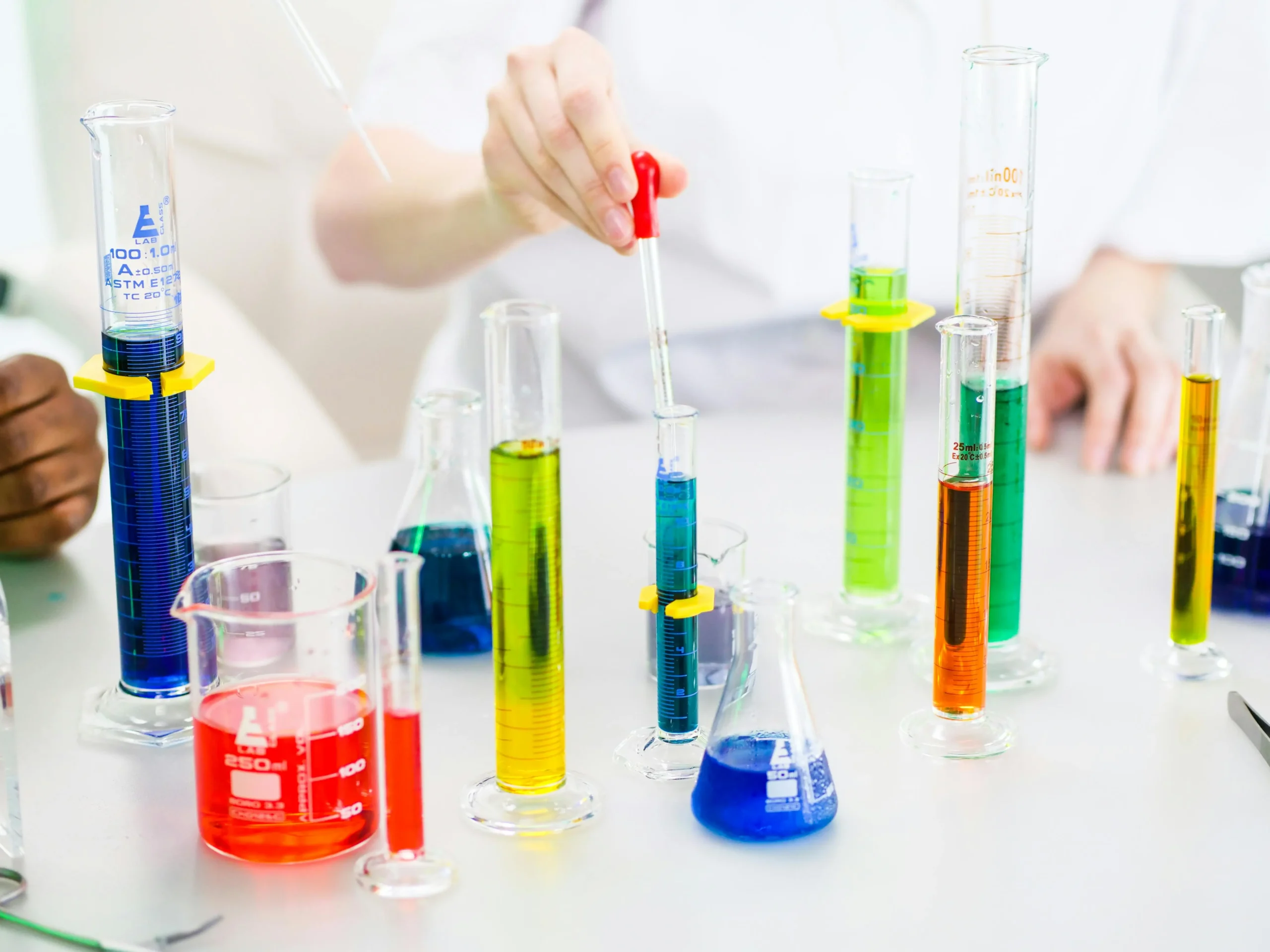Did you know that over 80% of households rely on chemical agents for cleaning? Understanding what different cleaning chemical agents are can make your chores easier and safer.
From disinfectants to degreasers, each type has a unique role in keeping our homes spotless. We’ll break down the essentials so you can choose the right one for every mess.
Key Takeaways
- Know Your Cleaning Agents: Understand the types of cleaning agents like detergents, degreasers, abrasives, and acids to choose the best one for your needs.
- Common Solutions: Familiarize yourself with common cleaning solutions such as bleach, vinegar, and baking soda for everyday tasks.
- Choose Wisely: Select the right product based on the surface and type of dirt. For example, use a degreaser for oily stains and a detergent for general cleaning.
- Safety First: Always check labels for safety instructions and wear protective gear like gloves when handling strong chemicals.
- Eco-Friendly Choices: Consider using eco-friendly products to reduce environmental impact. Look for biodegradable and non-toxic labels.
- Proper Storage: Store cleaning agents in a cool, dry place away from children and pets to ensure safety.
1. Understanding Cleaning Agents

1. Types of Agents
1. Acidic
Acidic cleaning agents and pressure washing chemical can be a great for removing scale and mineral deposits. Household vinegar is an eco-friendly acidic cleaner for hard surfaces. Sulphuric acid dissolves organic blockages in drains effectively.
2. Alkaline
Alkaline cleaners break down fats, oils, and proteins, making them perfect for kitchens. They often contain dispersants to prevent dirt re-deposition. Bleach and ammonia are powerful alkaline agents used on various surfaces.
3. Neutral
Neutral pH cleaners are versatile and safe for many surfaces. Non-ionic surfactants in neutral cleaners help disperse dirt without causing damage. These agents are suitable for sensitive areas where pH balance matters.
4. Scouring
Scouring agents use abrasive powders to remove tough stains. Common household products with scouring agents include Ajax and Comet. Some scouring agents also contain bleaching powders for extra cleaning power.
2. Agent Purposes
1. Clean Surfaces
Choosing the right chemical agent based on the surface material and taking precautions on when to not mix chemicals Neutral agents are effective for delicate surfaces to avoid damage. Alkaline and acidic cleaners are best for heavy-duty cleaning and stain removal.
2. Remove Stains
Acidic cleaners remove rust and lime stains well. Alkaline cleaners, available as bulk cleaning chemicals, break down grease and protein-based stains effectively. Scouring agents physically remove stubborn stains from hard surfaces.
3. Disinfect Areas
Disinfectant chemical agents are crucial in areas prone to bacteria and viruses. Some chemical agents combine cleaning with disinfecting properties. Bleach-based products are effective in killing germs on various surfaces.
4. Degrease Tools
Alkaline cleaners are effective in removing grease from tools and machinery. Proper dilution and application techniques are essential for degreasing agents, including dilute chemicals and tips to use pressure washing chemicals. Specialized degreasers are used for automotive and industrial applications.
2. Common Cleaning Solutions

1. Kitchen Cleaners
1. Oven Products
High-strength alkaline cleaners are used for burnt-on grease in ovens and to polish aluminum. These chemical cleaning agents break down tough residues. Safety precautions are necessary to avoid damage. Always wear gloves and ensure proper ventilation. Eco-friendly options are available for those seeking gentler solutions.
2. Dishwashing Aids
Alkaline agents in dishwashing detergents cut through grease. Rinse aids improve drying and prevent water spots. Choose aids compatible with dishwasher materials to avoid damage.
Home Care
1. All-purpose Solutions
All-purpose cleaners are versatile for many household tasks. They balance ingredients to clean effectively without causing harm. Eco-friendly options exist as alternatives to traditional chemicals.
2. Laundry Detergents
Enzymes in laundry detergents break down protein-based stains. Fabric softeners improve texture and reduce static. Specialized detergents cater to different fabrics and colors, ensuring optimal care.
2. Specialized Cleaning
1. Floor Care
Selecting the right cleaning agent depends on the floor type. Neutral cleaners are best for hardwood floors to prevent damage. Alkaline cleaners effectively remove grime from tile and linoleum floors.
2. Carpet Maintenance
Specific carpet cleaners lift stains without damaging fibers. Encapsulation technology traps dirt for easy removal. Regular maintenance extends the life of carpets, keeping them fresh and clean.
3. Sanitation Products
1. Toilet Hygiene
Acidic cleaners remove limescale and stains in toilets. Disinfectant properties ensure hygiene. Automatic toilet bowl cleaners provide continuous cleanliness, making maintenance easier.
2. Drain Maintenance
Acidic and alkaline cleaners keep drains free of clogs and odors. Regular maintenance prevents blockages. Eco-friendly alternatives avoid harsh chemicals while maintaining effectiveness.
3. Choosing the Right Product

1. Factors to Consider
1. Surface Type
Matching cleaning agents to surface types is crucial. Using the wrong cleaner can cause damage. Delicate surfaces like glass and polished wood need gentle cleaners. They prevent scratches and maintain shine.
Stronger cleaners work best on durable surfaces. Concrete and metal can handle tougher chemicals. These cleaners remove stubborn dirt and grime effectively.
2. Cleaning Need
Selecting a cleaner depends on the task. Stain removal, disinfecting, and degreasing need different agents. Multi-purpose cleaners are good for everyday use. They handle light cleaning tasks well.
Specialized cleaners are needed for specific challenges. Knowing the cleaning problem helps in choosing the most effective agent. This ensures better results.
2. Product Selection Guide
1. Manual vs Automatic
Manual cleaning agents require effort. Scrubbing by hand can be more effective for stubborn stains like on a clean engine. Automatic systems like dishwashers and laundry machines offer convenience. They save time and ensure routine maintenance.
Manual intervention is sometimes necessary. Certain stains or tasks need extra attention. Combining both methods often yields the best results.
2. Eco-friendly Options
Eco-friendly cleaning agents are becoming popular. They minimize environmental impact. Plant-based and biodegradable cleaners from a Canadian chemical manufacturer are safer for health and safety.
Natural ingredients in these products are effective for many tasks. They clean well without harmful chemicals. This makes them a good choice for everyday use.
4. Environmental Impact and Safety
1. Eco Considerations
1. Biodegradability
Choosing biodegradable cleaning agents is crucial. These products break down naturally, reducing environmental harm. Look for labels and certifications like “Green Seal” or “EcoLogo.” These indicate eco-friendly options.
Consumers play a big role. By demanding sustainable solutions, companies will produce more eco-friendly products. Your choices can make a difference.
2. Chemical Runoff
Chemical runoff from traditional cleaners can harm the environment. It can pollute water sources and soil. Proper disposal and dilution are essential to minimize this impact.
Selecting eco-friendly products helps reduce pollution risks. Always follow disposal guidelines to protect nature.
2. Safe Usage Tips
1. Handling Chemicals
Handle strong chemical agents with care. Use protective gear like gloves and masks. Ensure good ventilation when cleaning to avoid inhaling fumes.
Store chemicals properly to prevent accidents. Safe handling protects both you and the environment.
2. Proper Storage
Store cleaning chemicals in a safe, dry place away from children and pets. Clearly label containers to avoid confusion. Securely seal them to prevent leaks.
Improper storage can lead to chemical reactions or spills. Always prioritize safety by following these tips.
5. Summary
We’ve covered a lot about cleaning agents, from understanding them to picking the right one and considering their environmental impact. It’s clear that knowing your options and their effects is crucial for making smart choices.
Now it’s your turn. Dive into your cleaning routine with confidence and make informed decisions that benefit you and the planet. Ready to switch to greener, safer products? Give it a shot and see the difference!
6. Frequently Asked Questions
1. What are cleaning agents?
Cleaning agents, including acid wash, are substances used to remove dirt, stains, and germs. They come in various forms like liquids, powders, and sprays. Think of them as your home’s best friend in the fight against grime.
2. How do I choose the right cleaning product?
Consider the surface you’re cleaning and the type of dirt. For example, use a glass cleaner for windows and a degreaser for kitchen counters. Always read labels and match the product to your needs.
3. Are natural cleaning solutions effective?
Yes, they can be! Vinegar, baking soda, and lemon juice are great natural cleaners. They’re safe for you and the environment but might require more elbow grease compared to chemical cleaners.
4. What is the environmental impact of cleaning products?
Many cleaning products contain chemicals that can harm aquatic life and pollute water sources. Opt for eco-friendly or biodegradable options to reduce your environmental footprint.
5. Why is it important to follow safety guidelines when using cleaning chemicals?
Safety guidelines protect you from harmful exposure. Cleaning chemicals can cause skin irritation, respiratory issues, or even poisoning if misused. Always read labels and wear protective gear like gloves.
6. Can I mix different cleaning agents?
Generally, no. Mixing chemicals like bleach and ammonia can create toxic fumes. It’s safer to use one product at a time and follow manufacturer instructions.
7. How do I know if a cleaning product is safe for my pets?
Look for pet-friendly labels or check the ingredients. Avoid products with strong scents or harsh chemicals. When in doubt, consult your vet or opt for natural cleaners.



